African feminism – a resounding aspect of modern conceptualisation of feminism through its increasing popularity and activeness is changing the world’s view of the continent’s female descendants. Famous Feminists – Influential African Feminists: Here are 8 inspiring African women who are shaping African feminism, breaking boundaries and making global impacts.
In recent times, the word feminism is increasingly becoming a common cliche in every corner of the society. The stampeding of the socio-economic and political rights of female gender and the increasing social stigmatization of women have made feminism spring up the board. Many would think feminism is all about fighting for the right of women through protests and rebellious acts. But beyond violence and defiant resistance, feminism cut across every facet of woman existence in the society. Although African feminism is usually described as a borrowed construct, feminism has existed in Africa since the times of Queen Nzinga of what is now Mozambique and Yaa Asantewaa of Ghana.
These women have inspired contemporary African feminists, who have contributed significantly to feminism in various ways—whether it be through art, music, writing or politics. They have been committed to bringing the voices of African women into the spaces that they work within, and they are indeed change-makers—not only on the African continent, but also throughout the African Diaspora. Feminism in Africa has evolved through time. In the nineteenth century, conscious traces of the ideology were found in the activities of the women living in pre-modern and colonial African societies. The twentieth century, however, brought a distinct wave of African women who fell well within the definitions of the controversial word. Women like Margaret Ekpo, Huda Sharaawi, Adelaide Casely-Hayford and Funmilayo Ransome Kuti all proved that feminism was never a borrowed ‘culture’, but simply a borrowed word. In the virtual world of today, more and more intelligent and impactful feminists have risen from different part of Africa.
They are actively creating political pathways, social response, and ideologies to restore rights in connection with reproduction, domestic violence, maternity leave, sexual harassment, equal pay, women’s suffrage, and sexual abuse. It is pertinent to recognize and celebrate some phenomenal feminists who through their art and influence are making the world an easier place for the female children in Africa and around the world.
Leymah Gbowee – Activist
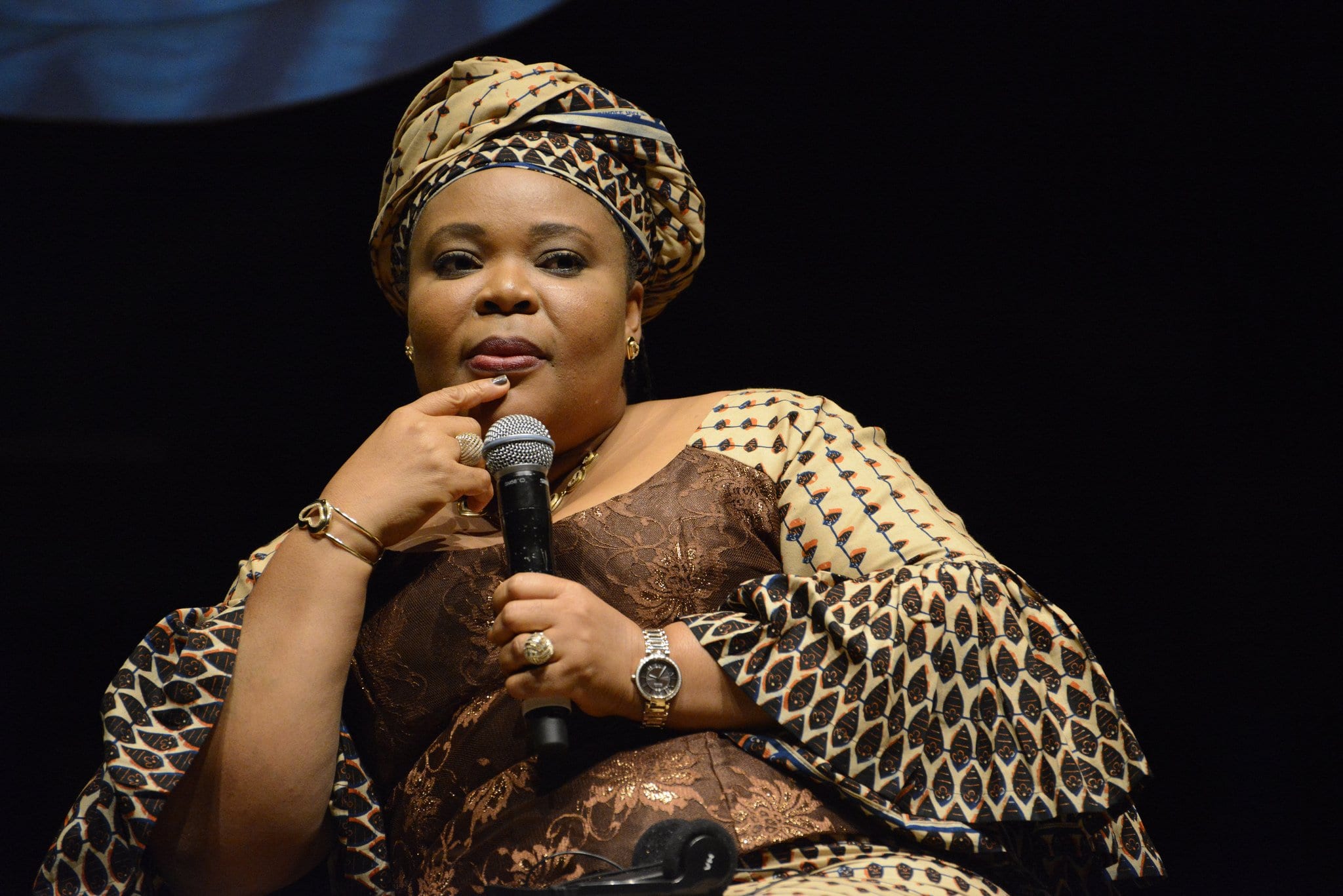
Leymah Gbowee is a Liberian peace activist, social worker and women’s rights advocate. She is the founder and president of the Gbowee Peace Foundation Africa, based in Monrovia. Leymah is best known for leading a nonviolent movement that brought together Christian and Muslim women to play a pivotal role in ending Liberia’s devastating, 14-year civil war in 2003. Her efforts to end the war, along with her collaborator Ellen Johnson Sirleaf , helped usher in a period of peace and enabled a free election in 2005 that Sirleaf won. She, along with Ellen Johnson Sirleaf and Tawakkul Karman , were awarded the 2011 Nobel Peace Prize “for their non-violent struggle for the safety of women and for women’s rights to full participation in peace-building work.
Aisha Fofana Ibrahim – Professor Activist
Aisha Fofona Ibrahim is the Director of the Gender Research and Documentation Centre at the University of Sierra Leone’s Fourah Bay College. In 2009-2010, she was the Helleiner Visiting Research Fellow at the North-South Institute, an IDRC-funded fellowship. While at the North-South Institute, Ibrahim’s focused on affirmative action as a means to overcome barriers that limit women’s entry into politics. She also serves as president of the 50-50 Group of Sierra Leone, which focuses on advocacy, policy, and capacity building for women’s leadership.
Another incredible honoree at #ignitesl2017 is Dr. Aisha Fofana Ibrahim!
Dr. Ibrahim is a feminist scholar/activist & 1 of Sierra Leone’s
foremost scholars & practitioners in Gender & Development.Thank you Dr. Ibrahim for your inspiring work! #girls #titinapowa #heartwork pic.twitter.com/ghJm0i36HZ
— GESL (@GESSierraLeone) December 19, 2017
Chimamanda Ngozi Adichie – Writer
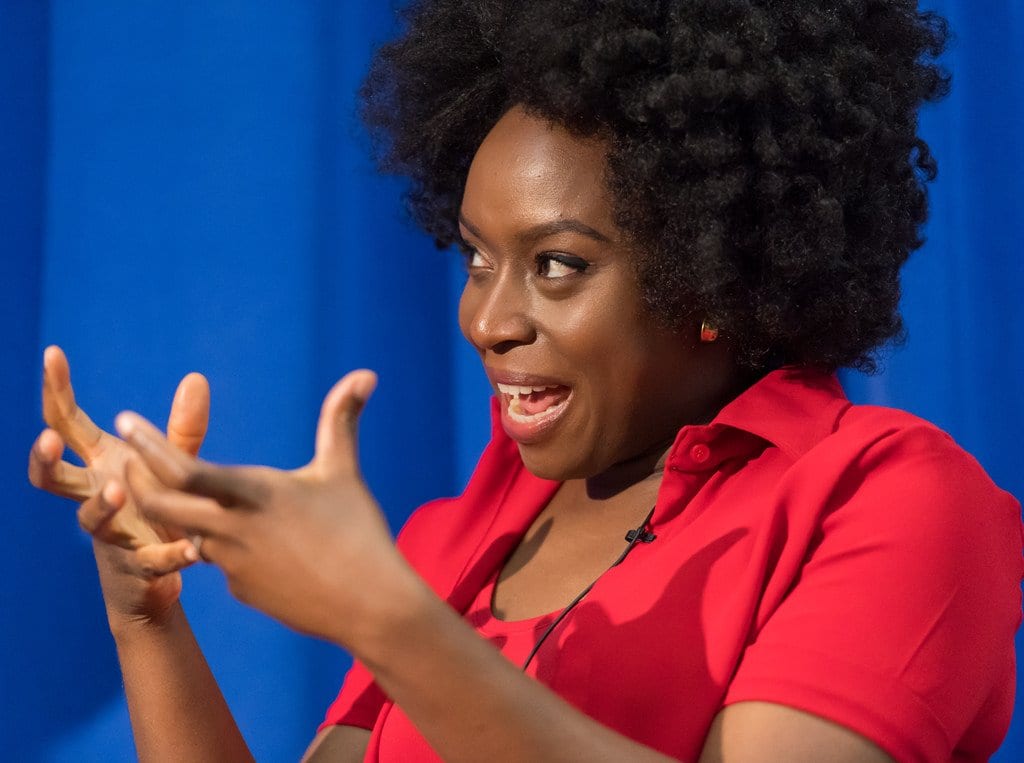
Chimamanda Ngozi Adichie was born in Nigeria in 1977. She is the author of three critically acclaimed novels. Purple Hibiscus (2003), Half of a Yellow Sun (2006), and Americanah (2013). She self-identifies as a feminist and has written and given speeches on various current topics relating to women’s issues in Nigeria and across the Diaspora, including her celebrated TED talks.
Osai Ojigbo – Lawyer and Activist
Osai Ojigbo is a Nigerian lawyer, gender justice advocate, and human rights activist. She holds a Law degree from the University of Wolverhampton in the United Kingdom. She served as the Deputy Executive Director at Alliances for Africa (AFA), where she coordinated the Gender Justice in Africa Initiative. She has designed and implemented programs aimed at building the capacity of community-based women leaders on issues related to human rights.
Amina Doherty – Activist
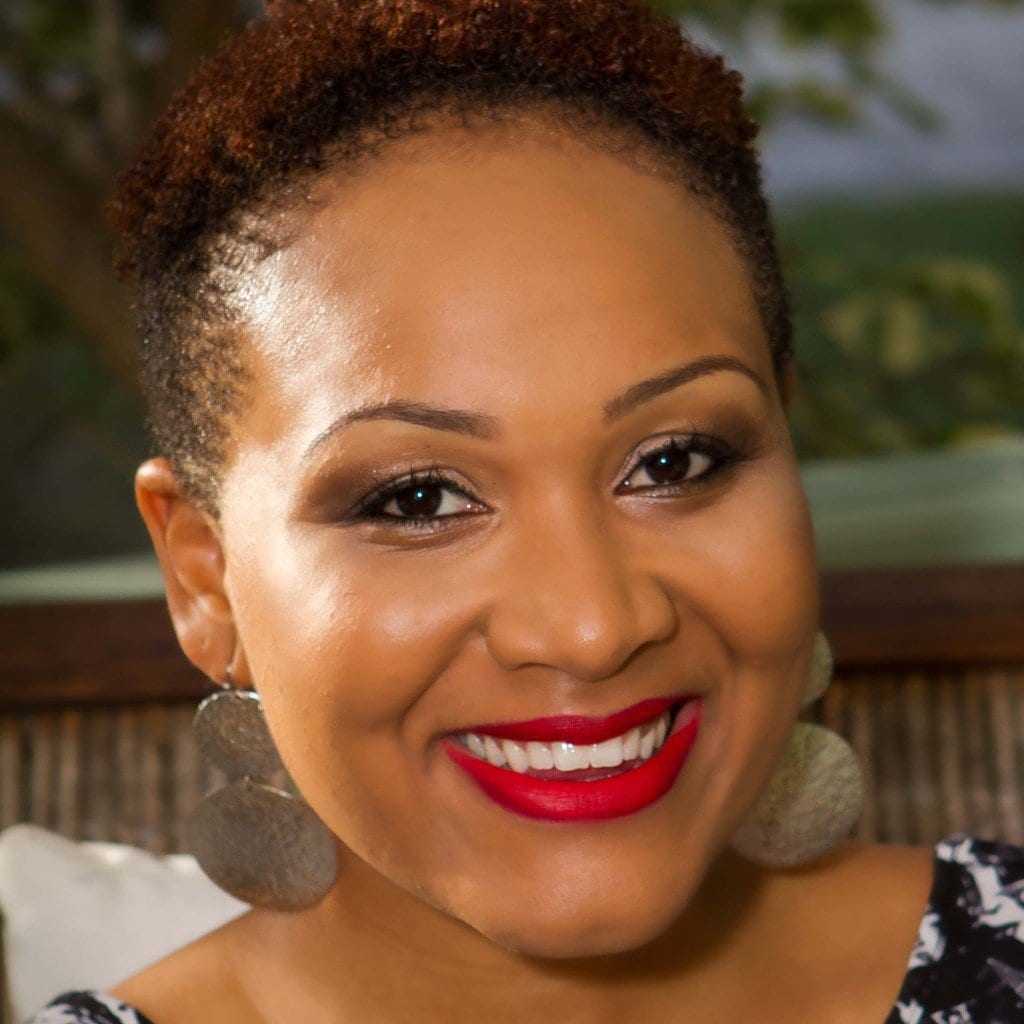
Amina Doherty is a Nigerian feminist artivist whose work focuses on feminist philanthropy and creative arts advocacy. She has facilitated learning initiatives on women’s rights, youth development, philanthropy, and economic justice. Amina actively supports several community – led media platforms and brings to her activism a passion for music and art, travel, photography, fashion and poetry.
Rainatou Sow – Executive Director of Make Every Woman Count
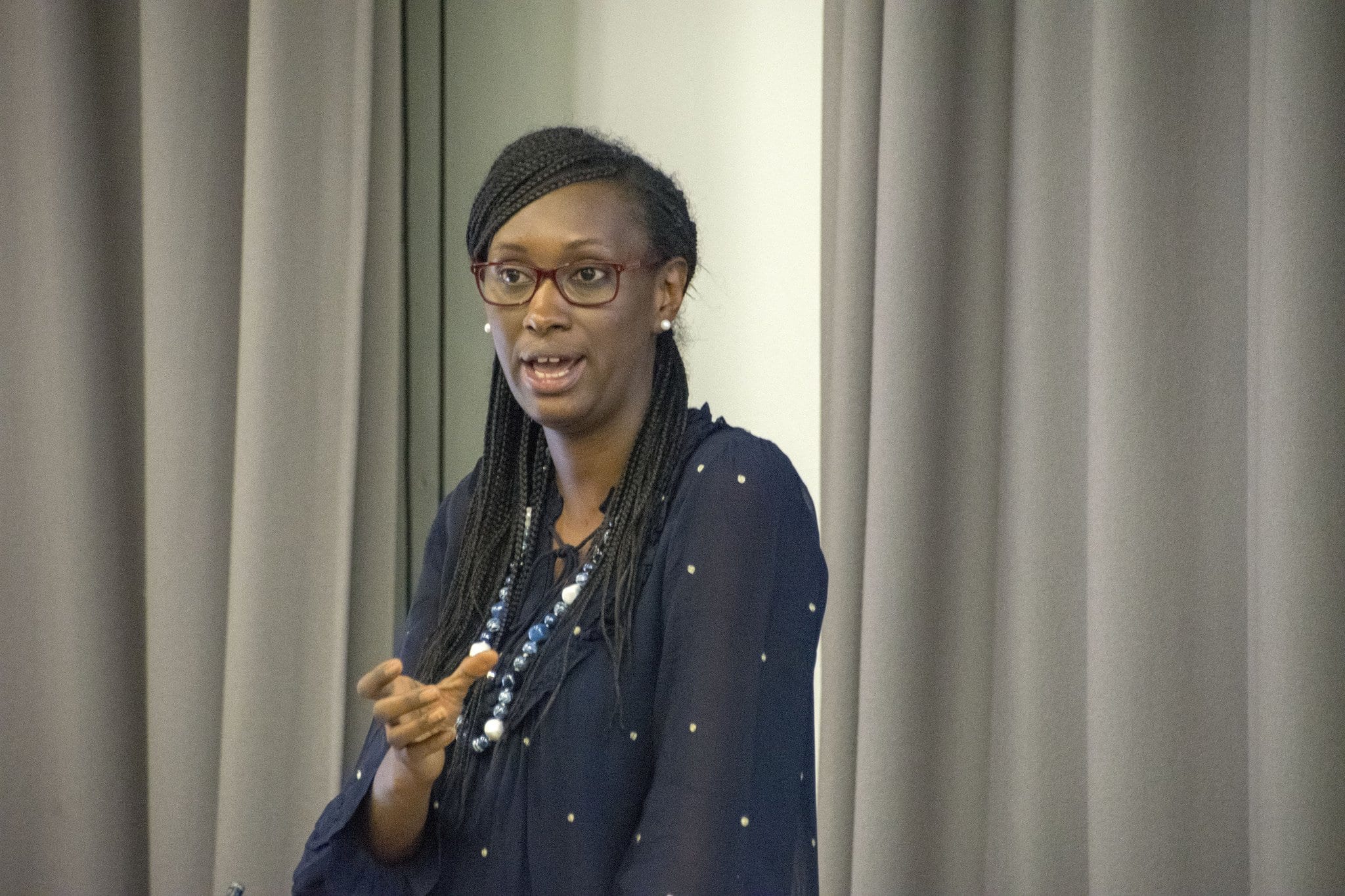
Rainatou Sow is the founder and executive director of Make Every Woman Count, an organization that monitors women’s rights throughout the African continent. The Guinean activist was named “Inspirational Woman of 2012” by the United Kingdom based group, Women 4 Africa. She has also featured on CNN, as well as Forbes Africa.
Maame Afon Yelbert-Obeng – Activist and Musician
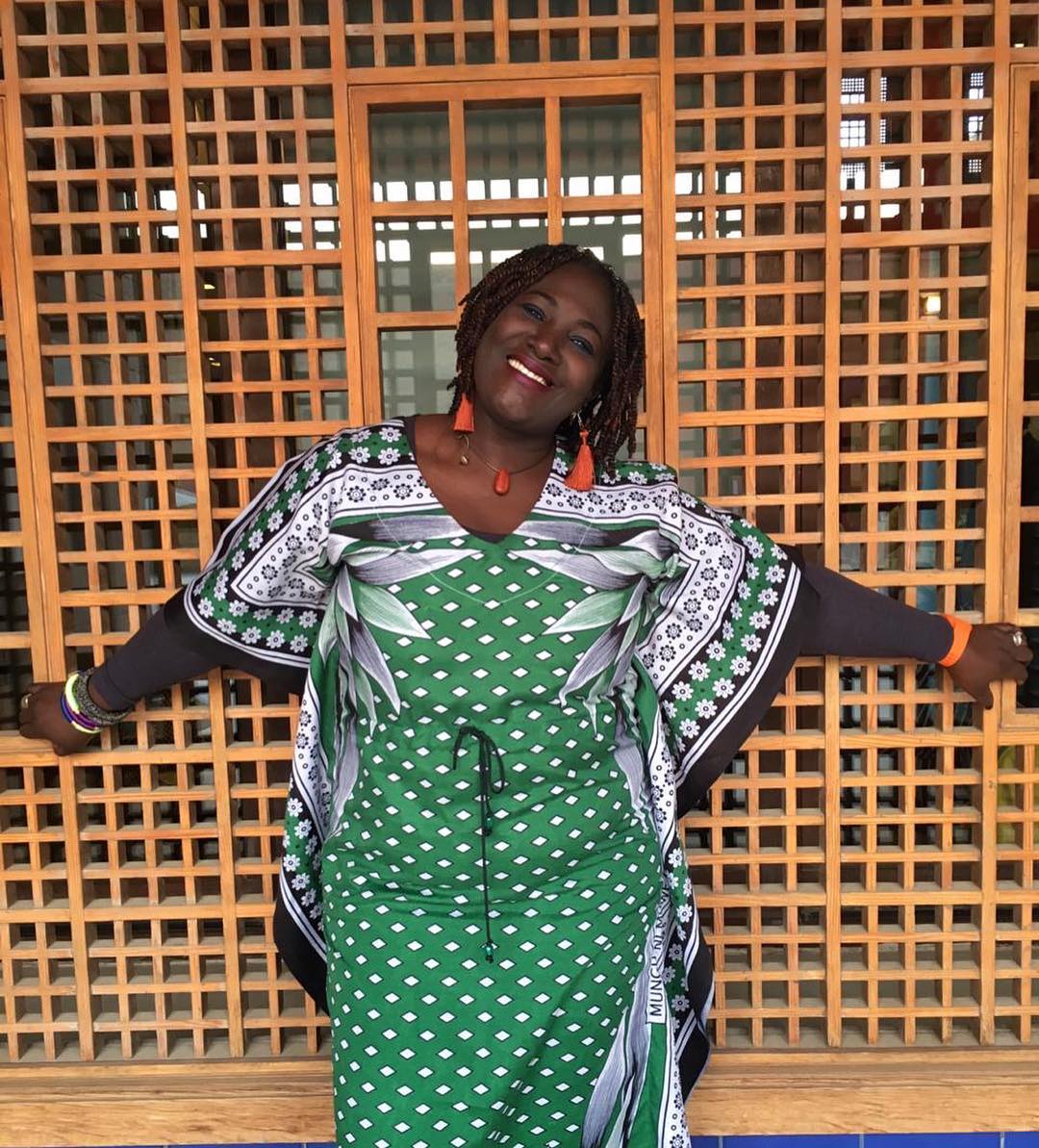
Maame Afon Yelbert-Obeng was born and raised in Ghana. She is a committed advocate and a passionate leader, who is also a dynamic singer and recording artist. Maame is a board member and program director of Moremi Initiative for Women’s Leadership in Africa. She is also a board member of We Care Solar, an award winning organization using solar technology to facilitate timely and appropriate emergency care for maternal and infant health.
Purity Kagwiria – Executive Director of the Akili Dada Institute
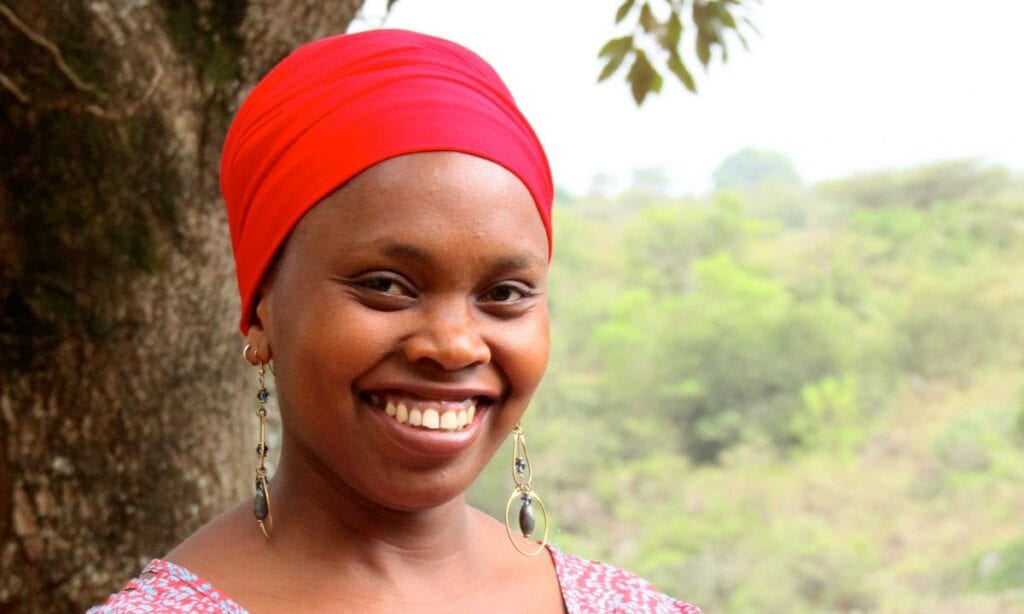
Purity Kagwiria serves as the executive director of the Akili Dada institute, an organization that provides education and leadership opportunity to girls and women in Kenya. She is a journalist by profession and an active member of the feminist/women’s rights movement and she is committed to analyzing the private and personal spaces that women inhabit and developing strategies that lead to the emancipation of women. Purity holds a degree in Gender and Development from the University of Nairobi and a Diploma in Journalism from Kenya Institute of Mass Communication.
We hope this compilation will act as a medium to inspire the young women of today to set the goals high and build the confidence to fight for what is right.



